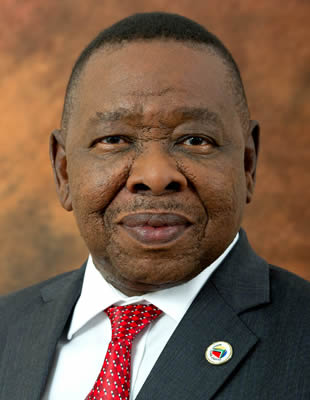
The Department of Science and Innovation (DSI), will pump R25 million towards the KwaZulu-Natal Research Innovation and Sequencing Platform (KRISP) as scientists grapple with the new COVID-19 variant.
Higher Education, Science and Innovation Minister, Dr Blade Nzimande, announced this on Friday, during a joint briefing with the Department of Health and scientists.
“This was in the wake of the latest surveillance results that shows a worrying trend of the highly transmittable COVID-19 variant first identified in Nelson Mandela Bay, Eastern Cape, and moved to the Western Cape, KwaZulu-Natal and is now the dominant and possibly the only COVID-19 variant responsible for the current surge,” said the department.
According to the department, the R25 million of the R45 million required over the next 12 months will help scientists to complete the sequencing of Severe Acute Respiratory Syndrome Coronavirus 2 (SARS-CoV-2) 10 000 genomes in South Africa and Africa.
A group of scientists discovered the new “unusual” Coronavirus variant called 501.V2, which is spreading rapidly in the country.
According to Health Department Minister, Dr Zweli Mkhize, this variant is seeing a larger proportion of younger patients with no comorbidities develop serious illness.
“The evidence that has been collated, therefore, strongly suggests that that the current second wave we are experiencing is being driven by this new variant.”
The department said the grant will be used to understand the spread of COVID-19 and other virus lineages on the continent while also supporting the clinical and laboratory investigations of the genomic variation in the country.
“This is in line with the use of pathogen genomics for monitoring of transmission dynamics of infectious agents and potential vaccine escape is of crucial importance to South Africa, Africa and the world,” said Minister Nzimande.
Nzimande said that these funds will be used to acquire equipment to automate the sequencing system and to buy reagents and other laboratory consumables.
Meanwhile, in April 2020, DSI through the Strategic Health Innovation Partnership funded KRISP for the project, ‘Spatial and Genomic monitoring of COVID-19 cases in South Africa to fight the flames before they become a wildfire’ to a tune of R10 million.
“This resulted in the establishment of the Network for Genomic Surveillance in South Africa in June 2020, with the goal to sequence the genome of at least 10 000 SARS-CoV-2 samples to inform the public health response in South Africa, and to use spatial and genomic monitoring of COVID-19 cases to help the government to identify hotspots of transmission and control the local epidemic.”
Meanwhile, the Minister said the next step is to get a better understanding of whether there is any clinical and epidemiological evidence to suggest increased transmissibility and/or pathogenicity of the virus and/or vaccine escape.
KRSIP
KRISP was established in 2017, situated at the University of KwaZulu-Natal’s Nelson R. Mandela School of Medicine.
The department describes KRISP as a cutting-edge genomics centre offering a range of DNA sequencing, precision medicine testing, bioinformatics services and technologies to academic, industrial and commercial users.
The centre is a platform of the Technology Innovation Agency (TIA), an agency of the DSI – a flagship programme of the South African Medical Research Council has established an excellent scientific infrastructure.
“Their vision is to challenge the status quo and establish one of the worlds most advanced and respected genetic sequencing platforms, to enable and support world-class genomics research and diagnostics services in Africa,” he said.
Nzimande said the consortium capacitated five key National Health Laboratory Services and their associated academic institutions to produce and analyse completely viral genomes in South Africa in near real-time.
The main investigators include Professor Tulio de Oliveira, Professor Carolyn Williamson, Dr Jinal Bhiman, Dr Nokukhanya Msomi, Professor Diana Hardie, Dr Marvin Hsiao, Professor Nicky Goedhals and Professor Susan Engelbrecht.